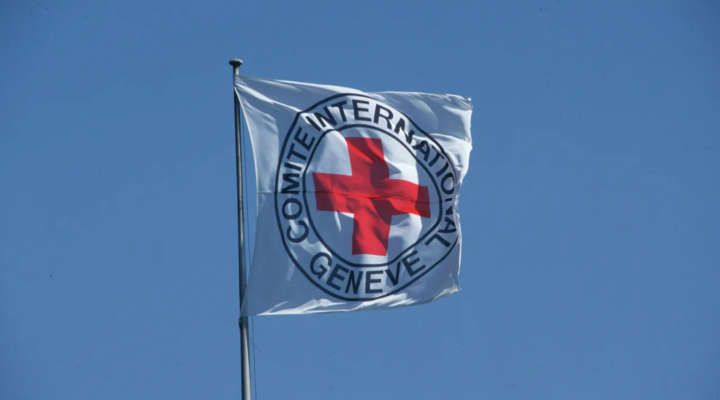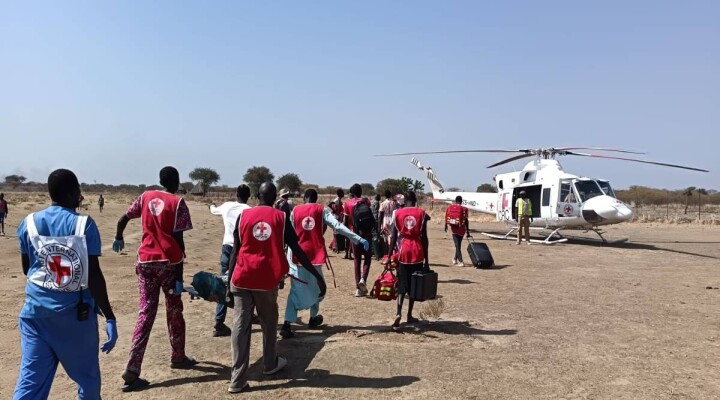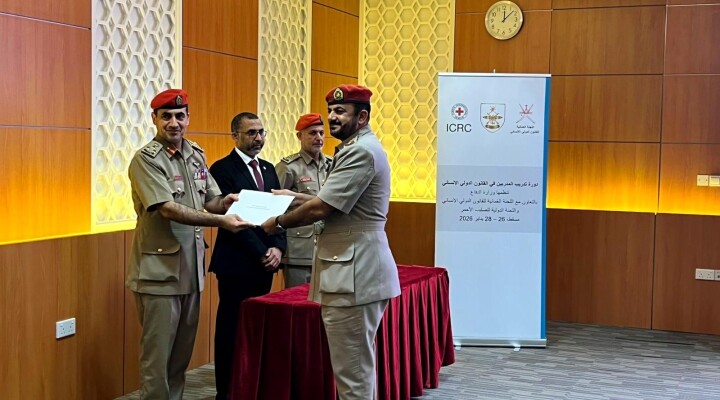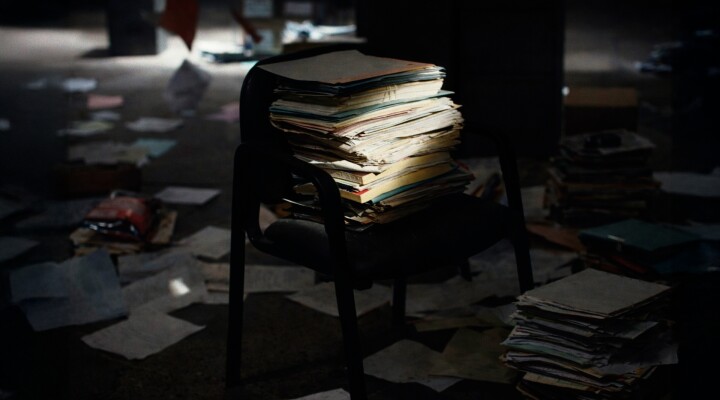The Falklands/Malvinas War: Finally answers
35 years after the end of the conflict between Argentina and the United Kingdom, a forensics mission has just started on the islands.
For the next couple of months, scientists from the International Committee of the Red Cross (ICRC) will collect DNA samples from the mortal remains of 123 unidentified Argentine soldiers buried in the Darwin cemetery.
At last, for some of these families, they will have know what happened to their loved ones, and have the possibility to put a name on their grave.
Under international humanitarian law, families have the right to know the fate of their loved ones. Morris Tidball-Binz, head of ICRC forensics team, states: “Everyone has the right to be identified after death. This includes those who die on the battlefield.”
Following an intense phase of talks between the Argentine and British authorities, facilitated by the ICRC, the exhumation are about to start. Located in the middle of the islands, the cemetery is subject to strong winds and snow storms at this time of year. However, winter time was considered the most suitable quietest time for the exhumations.
In 1983, a British army officer organized a proper burial for hundreds of Argentine soldiers who had been buried in the haste of the war. The cemetery hosts 237 tombs with 123 bearing the inscription: "Soldado argentino solo conocido por Dios" which means "Argentine soldier known only unto God."
Tidball-Binz says: “In the hearts and minds of families affected by the loss of a loved one, time often does not go by. It is therefore not surprising that even decades after the death of these soldiers, families have come forward to request their identification.”
The first step in the exhumation process was a religious blessing of the site by a priest.
The ICRC forensic team is expected to exhume between one and three unidentified bodies a day. Bodies will be immediately transferred to a field laboratory close to the cemetery where scientists will analyse all the remains including clothes, bones and teeth.
Each and every body will be reburied the same day with the utmost care and respect. DNA samples will be transferred to laboratories in Argentina for comparison with DNA samples provided by the families of soldiers, and some samples will be also analysed in England and Spain for quality control. Results are expected at the end of the year, in order for the families to have finally some answers.
The designations employed in this statement do not imply official endorsement, nor the expression of any opinion whatsoever on the part of the ICRC concerning the legal status of any territory, or concerning the delimitation of its frontiers or boundaries. Whenever a disputed territory is given different names by the parties concerned, the ICRC uses those names together, in French alphabetical order.
Download this footage from ICRC Video Newsroom
For further information, please contact:
Elodie Schindler, ICRC Geneva, tel: +41 79 536 92 48 (French/Spanish/English)
Sandra Lefcovich, ICRC Brasilia, tel: +55 619 81 75 15 99 (Spanish/Portuguese)
Matthew Morris, ICRC London, tel: +44 7753 809 471 (English)
Follow the ICRC on facebook.com/icrc and twitter.com/icrc
SHOTLIST
Length:
Format: HD H264 mov
ICRC ref: AV649N
Date: 19 June 2017
Copyright: ICRC access all
SHOTLIST
0:00 In car
0:06 Cemetery
SOUNDBITE Morris Tidball-Binz, Head of ICRC Forensics Team (Spanish)
“Everyone has the right to be identified after death. And this applies to those who die in a battlefield, as many of those are buried in this cemetery. And their families have come forward to request the ICRC to identify the soldiers without a name, and that’s the reason why we are here today.”
0:49 ICRC forensic team preparing for exhumations
SOUNDBITE Laurent Corbaz, head of the ICRC mission if the Falklands/Malvinas (English)
1:42 “The first logistical challenge has been really to imagine how to work and to establish a working site here at Darwin, to give the opportunity to scientists to work in the best conditions possible. That has been somehow a challenge.”
SOUNDBITE Morris Tidball-Binz, Head of ICRC Forensics Team (Spanish)
1:57 “In the hearts and minds of families affected by the loss of a loved one, time often does not go by. Especially when they don’t know exactly where that person is, or they do not have the benefits of having had the loved one identified. And it is therefore not surprising that even decades after the death of these soldiers, families have come forward to request their identification.”
2:31 graves bearing the inscription: ‘Soldado argentino solo conocido por Dios’ which means ‘Argentine soldier known only by God.’
3:02 Forensic team numbering graves
3:29 Priest blessing
SOUNDBITE Tim Edwards, UK veteran (English)
3:50 “It’s 35 years ago. I don’t carry anger against anybody. I was here to do a job. Those guys were here to do a job. Those guys did not make it, I did. But that the way it is. What would I say to these families? I hope they get what they want. That’s all I can say. I hope they get what they want, they get a result. I hope that you or your scientists are able to find a result. Because it’s closure for everybody.”
4:19 archive footage of 1983 burial
5:05 END



